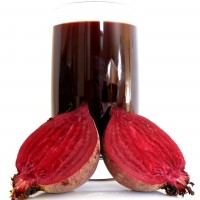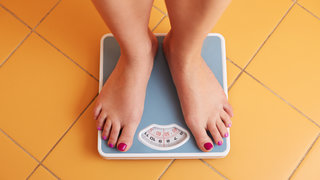Calculating Food Calories
Carbohydrate 4 Calories Per Gram
Fat 9 Calories Per Gram
Ok so now we know how many calories we need to eat to either gain or lose weight but how do we know how many calories are in the foods that we eat? Obviously we are going to need to know this in order to track our total daily calorie consumption. Let's take a minute to examine the small chart located just above this paragraph. It's actually rather simple, protein contains 4 calories per gram, carbohydrates also contain 4 calories per gram, and fat contains a whopping 9 calories per gram. Using this valuable , basic information we can now calculate the number of calories in any food item as long as the amount of protein, carbohydrate, and fat are all known.
Of course not many people are going to want to spend the time to calculate manually how many calories are in each piece of food they put into their mouths. Fortunately, a lot of the work has already been done for us. I'm sure everyone reading this article is at least vaguely familiar with the nutrition labels that are required on all food products sold in the United States. At the very least you will find: protein gms, total carbohydrate gms, sugar gms, fat gms, and total calories on these labels. Everything we need to know in order to calculate our total calorie consumption; protein, fat and sugar intake, is right there on the label.
Below you can see an item that I pulled from
Fat Food Energy Carbohydrate Protein Cholesterol Weight Saturated Fat
Description of food (Grams) (Calories) (Grams) (Grams) (Milligrams) (Grams) (Grams)
CHICKEN, ROASTED, BREAST 3.0 OZ 3 140 0 27 73 86 0.9
I have gone to the trouble of explaining much of this information fully aware of the fact that it is not absolutely necessary to know all of this background information to succeed at either gaining weight, losing weight, or improving overall fitness. However, over time I have discovered that the better I understand how protein, different types of carbohydrates, and fats affect my body, the easier it has become for me to use food as more than just a way to replenish my depleted muscles and satisfy hunger. Used in the right ratios and consumed at the right times proteins and carbohydrates can be used together as a very powerful anabolic performance aid. I encourage anyone who is reading this article to go out there and do more research. These brief articles only scratch the surface on explaining the role of proteins, fats, and carbohydrates in metabolism, recovery, and muscle repair.
Knowing the total number of calories needed to gain or lose weight is only one part of the nutrition puzzle, so to speak. What about the ratio of protein to carbohydrate, carbohydrate to fat and vice versa. Consuming an adequate amount of protein is absolutly essential to building and repairing muscle so how much is the right amount? Well opinion on this topic varies a bit but the consensus is between 1 and 1.5 grams of protein per pound of bodyweight. My personal experience is that I responded positively and continued to add solid muscle weight until I finally plataued at nearly 2 grams of protein to each pound of body weight. Weighing about 240 pounds at the time meant that I was consuming almost 500 grams of protein everyday and had a total caloric intake at around 4000 daily. However, consuming 400 to 500 grams of protein everyday can be hard to stomach, literally, and quite expensive as well. I would recommend starting at 1 gram of protein per pound of bodyweight for the first few weeks then gradually increasing to a peak of 1.5 grams per pound of body weight. Once again I must point out that many factors beyond our control, like genetics, age and health issues, can either slow or sometimes even prevent this approach from being effective.
Let's say that you weigh 180 pounds and that you have calculated your 'maintenance caloric need' to be 2200 calories and you would like to put on 10 pounds of new muscle by attempting to gain 1 pound of bodyweight a week. Your goal then would be to consume a total of 2700 (2200+500) calories a day, everyday, to hit the magic number: 3500 for the week, to gain one pound. At a current bodyweight of 180 lbs you should be consuming 180 x 1.5 = 270 gms of protein everyday to ensure proper muscle recovery. Knowing that every gram of protein has 4 calories and that you need to consume 270 gms of protein you can now figure out how many calories you will be consuming from the protein alone 270x4 = 1080 calories. Ok so now you can take the 1080 away from the total calorie daily goal of 2700 - 1080 = 1620 calories still need to be consumed from carbohydrates and fats. Fat consumption should be about 20% of total caloric goal 2700 x 20% = 540 calories need to come from fat. So divide 540 / 9 = 60 grams of fat (remember fat has 9 calories per gram). Ok so now we take our goal caloric goal 2700. Subtract 1080 for protein and 540 for fat: 2700 - 1080 = 1620 - 540 = 1080 remaining calories that have to be consumed from carbohydrate. 1080 / 4 = 270 grams of carbohydrate preferably from good high quality complex long chain variety.
So we end up with:
Protein (Grams x 4) 270 x 4 = 1080
Carbs (Grams x 4) 270 x 4 = 1080
Fat (Grams x 9) 60 x 9 = 540
-----------------
2700 Daily Caloric Goal
Related Articles
-
Courage To Change
When you decide its time to lose a few pounds --or more than a few pou
-
The Importance of Measuring Fat Loss Progress
Weight loss is becoming a real necessity in our modern society - what
-
The Skinny on Weight Loss
In the land of the free fast-food upgrade, weight gain stigma can be a
-
Week 10: Give and take
Last updated: Dec 02, 2010 By Julie
-
Rejuvenation and the Protein Revolution
Rejuvenation and the Protein Revolution in Your Kitc
-
The Fat Burning Furnace - The 15 Minute Miracle!
The Fat Burning Furnace - The 15 Minute Miracle! Find Out How To: Los
- DON'T MISS
- Xenadrine Efx For Weight Loss
- New Weight Loss Product Exposes 3 Major Diets You Should Not Use!
- Clenbuterol – Ideal ways of using it for obtaining positive results
- 3 Rules For Good Diets To Lose Weight Fast
- Keeping Yourself Accountable on a Diet
- Weighted Hula Hoop Workout routines - How To Handbook
- Capsiplex Review ?Lose Weight with All-Natural Help from Red Pepper Extract
- The Diet Plate
- Lose Weight Your Way
- Low Calorie Snacks




